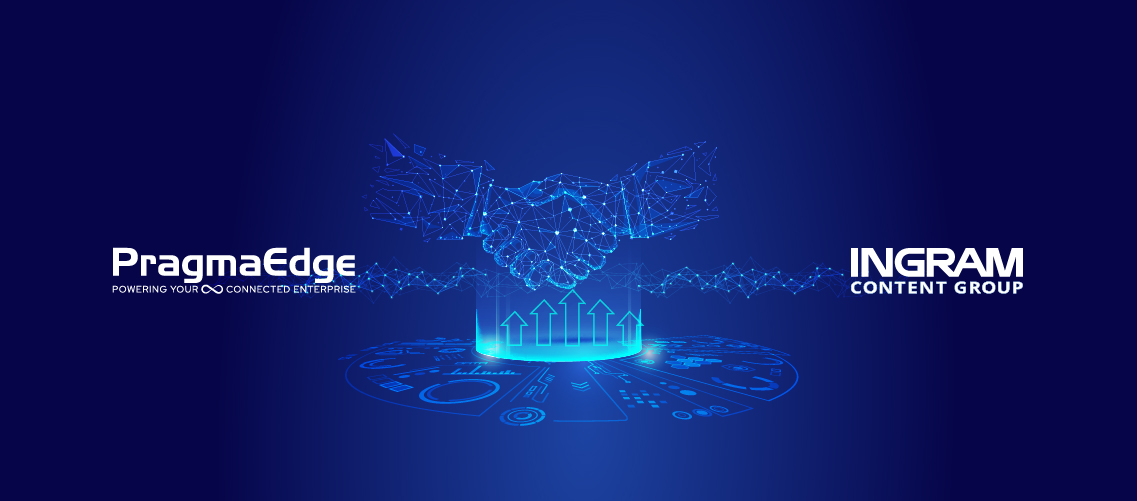
IBM watsonx for Enterprise Asset Management
IBM watsonx for Enterprise Asset Management: Leveraging AI to Boost
Legacy Business Process Management (BPM) solutions have long been the backbone of enterprise workflows. However, as businesses evolve, these traditional systems are struggling to keep up with modern demands. High maintenance costs, lack of agility, and limited integration capabilities are forcing organizations to seek smarter alternatives.
The solution? Intelligent Automation (IA) – a next-generation approach that combines AI, machine learning, robotic process automation (RPA), cloud-native architectures to revolutionize business processes. With the integration of Generative AI and Agentic AI, the future of Intelligent Automation offers unprecedented opportunities for smarter, more adaptive processes.
If your organization is still relying on outdated BPM systems, now is the time to transition. In this blog, we will explore the challenges of legacy BPM, the benefits of intelligent automation, and how to make a smooth transition.
While legacy BPM solutions were effective in the past, they now present significant challenges:
Lack of Flexibility & Agility: Legacy BPM platforms often require complex coding and manual intervention, making it difficult to adapt to changing business needs. As organizations demand faster process automation and continuous improvements, these systems become bottlenecks.
High Maintenance Costs — Maintaining outdated BPM systems can be costly and time-consuming. Frequent upgrades, licensing fees, and IT support add up, draining resources that could be better invested in innovation.
Limited AI & Automation Capabilities — Modern businesses require AI-driven insights and hyperautomation to improve decision-making and process efficiency. Unfortunately, traditional BPM systems lack built-in AI capabilities, making automation limited and inefficient.
Integration Challenges: Legacy BPM struggles to seamlessly integrate with modern cloud applications, APIs, and third-party systems. This results in data silos, fragmented workflows, and operational inefficiencies.
Time-Consuming Development & Customization: Customization in traditional BPM often requires manual coding, increasing development time and deployment costs. Businesses need low-code/no-code solutions for rapid automation.
Intelligent Automation combines AI, RPA, low-code development, and cloud technology to create highly efficient and adaptive business processes. Here’s why companies are making the shift:
AI-Powered Process Optimization: With AI-driven analytics, businesses can predict workflow inefficiencies, automate repetitive tasks, and optimize decision-making in real-time. This leads to increased productivity and cost savings.
Seamless Cloud & API Integration: Unlike legacy BPM Solutions, intelligent automation platforms are cloud-native and API-first, enabling seamless integration with modern enterprise applications, CRM systems, and ERP solutions.
Hyperautomation & RPA: By combining robotic process automation (RPA) with AI and machine learning, intelligent automation eliminates manual tasks, reducing errors and boosting operational efficiency.
Low-Code/No-Code Development: Modern automation platforms empower business users with low-code/no-code tools, allowing for faster process automation and customization without heavy IT involvement.
Scalability & Future-Readiness: Intelligent automation platforms are built for continuous innovation, ensuring scalability, real-time decision-making, and adaptability to new business needs.
Generative AI: This technology can create new ideas, workflows, and content automatically saving time and helping businesses adapt quickly.
Agentic AI: Agentic AI acts like a smart assistant that can work on its own, make decisions, fix issues, and improve workflows without needing constant human help.
While Intelligent Automation brings a wide range of benefits, the inclusion of Generative AI and Agentic AI takes business process optimization to new heights. These advanced technologies introduce innovative capabilities that modernize the way businesses automate and interact with their workflows.
Agentic AI: While Generative AI focuses on creative automation, Agentic AI brings autonomous decision-making to the forefront. Agentic AI refers to intelligent agents that can autonomously perform complex tasks, manage workflows, and make critical decisions in real-time.
With Agentic AI, business processes can run without continuous human oversight. These intelligent agents handle exceptions, monitor performance, and adjust workflows to ensure that operations remain efficient and optimal. They can also learn from past interactions, improving decision-making over time and ensuring continuous process improvement.
Generative AI: Generative AI is revolutionizing the way businesses approach process design and optimization. Rather than simply automating predefined workflows, Generative AI can generate new process flows, designs, and content, effectively adapting to evolving business needs.
Generative AI can autonomously create process flows based on historical data, learn from past decisions, and optimize workflows in real-time. This capability accelerates process design, reduces the need for manual configuration, and enables organizations to stay ahead of the curve with dynamic process management.
Moreover, Generative AI can create tailored solutions for unique business challenges, producing high-quality, context-aware decisions without human intervention. This kind of automation allows businesses to unlock creativity and innovation in their operations, resulting in more efficient and customized workflows.
How to Transition from Legacy BPM to Intelligent Automation
If your organization is still using a legacy BPM system, here’s how you can successfully transition:
Conclusion
Legacy BPM systems are no longer capable of meeting the fast-changing demands of modern businesses. Organizations that continue to rely on outdated BPM platforms will struggle with inefficiencies, high costs, and limited agility.
The transition to Intelligent Automation is not just a technological upgrade—it’s a strategic shift that drives innovation, enhances productivity, and enables organizations to stay ahead of the competition. The combination of Generative AI and Agentic AI propels this shift, offering businesses unprecedented capabilities in process innovation, optimization, and autonomy.
Now is the time to move from legacy BPM solutions and embrace the future of automation. Contact Pragma Edge Team at sales@pragmaedge.com for more information on our BPM Solutions.
Browse Categories
Share Blog Post
Installing IBM Maximo APM - Asset Health Insights
IBM Maximo Application Suite Overview

IBM watsonx for Enterprise Asset Management: Leveraging AI to Boost

Building a Connected Enterprise for Ingram Content Group What Our

IBM Sterling for Modern B2B Integration, EDI, and Managed File
| Cookie | Duration | Description |
|---|---|---|
| cookielawinfo-checkbox-analytics | 11 months | This cookie is set by GDPR Cookie Consent plugin. The cookie is used to store the user consent for the cookies in the category "Analytics". |
| cookielawinfo-checkbox-functional | 11 months | The cookie is set by GDPR cookie consent to record the user consent for the cookies in the category "Functional". |
| cookielawinfo-checkbox-necessary | 11 months | This cookie is set by GDPR Cookie Consent plugin. The cookies is used to store the user consent for the cookies in the category "Necessary". |
| cookielawinfo-checkbox-others | 11 months | This cookie is set by GDPR Cookie Consent plugin. The cookie is used to store the user consent for the cookies in the category "Other. |
| cookielawinfo-checkbox-performance | 11 months | This cookie is set by GDPR Cookie Consent plugin. The cookie is used to store the user consent for the cookies in the category "Performance". |
| viewed_cookie_policy | 11 months | The cookie is set by the GDPR Cookie Consent plugin and is used to store whether or not user has consented to the use of cookies. It does not store any personal data. |
Thank you for submitting your details.
For more information, Download the PDF.
Thank you for registering for the conference ! Our team will confirm your registration shortly.
Invite and share the event with your colleagues
IBM Partner Engagement Manager Standard is the right solution
addressing the following business challenges
IBM Partner Engagement Manager Standard is the right solution
addressing the following business challenges
IBM Partner Engagement Manager Standard is the right solution
addressing the following business challenges